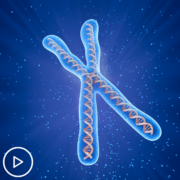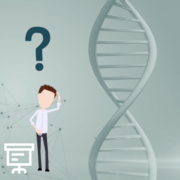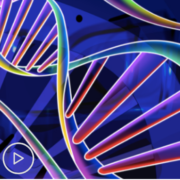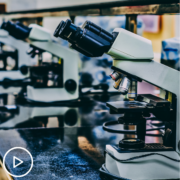AML Genetic Testing: Could It Lead to a Targeted Treatment for You?
AML Genetic Testing: Could It Lead to a Targeted Treatment for You? from Patient Empowerment Network on Vimeo.
AML expert, Dr. Pinkal Desai, outlines the reasoning behind the necessity of cytogenetics and molecular testing when managing an AML diagnosis. Want to Learn More? Download Your AML Navigator Resource Guide, here.
Dr. Pinkal Desai is an Assistant Professor of Medicine at Weill Cornell Medical College and Assistant Attending Physician at the New York-Presbyterian Hospital. More about this expert here.
Related Resources
Transcript:
Dr. Pinkal Desai:
So for patients who are undergoing molecular testing or any diagnosis of AML, both cytogenetics and molecular profiling are important, so they do not supersede each other. This is the conglomerate information that we need from the diagnosis to make important medical decisions. Usually the diagnosis would include: looking at the cells under the microscope by the pathologist; flow cytometry, which is a way to identify the subtype of leukemia; chromosomes or karyotypic analysis, which is to look at the individual chromosomes and whether they are abnormal in these leukemia cells; and the last one would be the molecular mutations, which would be single-gene profiling of the leukemia cells.
All of these are important, and it’s not that one can be omitted. They’re all part and parcel of the diagnosis of AML, and all of them should be done.
So my advice to patients whenever this topic comes up of molecular mutations is always an unequivocal – there should be no question that this should not be done. The advice is plain and simple. This has to be done at diagnosis and, in certain cases, at relapse as well in order to figure out the best treatment possible. If they’re at a site or a clinic where this molecular testing is not available, then they should seek a second opinion to a site that would do this testing because in this day and age of leukemia, there is no treatment and diagnosis that can be done without all of these components in place.
In the old days, we didn’t have a lot of treatment in AML. It was either chemotherapy or hypomethylating agents, and that’s it. But now we have several drugs, five or six of them, that were just approved in the past two years specifically for leukemia and targeting some of these mutations. We have Midostaurin, Gilteritinib, Ivosidenib, Enasidenib, and I don’t want to go on and on about these drugs, but the most important thing is that in this day and age where you have so many drugs, how to incorporate these drugs into the management for patients, both upfront and in the relapse setting, it’s extremely relevant to do this testing, and this is highly encouraged and should be done as part of the diagnosis and treatment.













